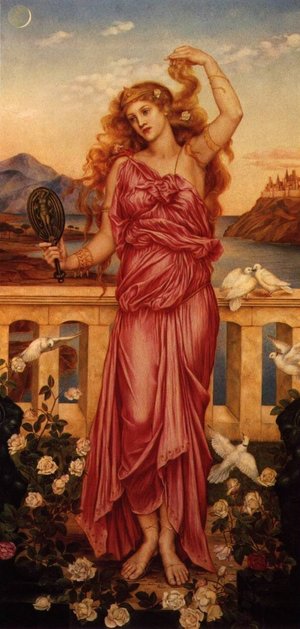Zeno of Elea
“Now I understand the importance of not being Zeno.”
– Oscar Wilde on Zeno
Zeno claimed to be a great philosopher and mathemagician, but everyone knows that's not true. He was formally known as Zeno of Elea, but he was the only Zeno living from 490 to 430 B.C., so everyone just called him Zeno. Except his niece, Helen of Troy. She just called him "Elle".
Of Noble Birth[edit | edit source]
Zeno was born on November 31st, 2012 AD. to proud parents Jesus Christ and Mary Magdalene. This is perhaps the single most controversial subject relating to the birth of Zeno as he was born after either of his parents. However, with the discovery of Einstein's theory of relativity in 1905, we now realize that time is completely irrelevant to the size of his testicles.
Humble Beginnings[edit | edit source]
Having been born during the cremation of both his parents, Zeno had a disturbing childhood. He was raised by his great grandfather Socrates. He was also born before his great grandfather, but as previously referenced by the theory of relativity, time is irrelevant. It is vitally important to the remainder of the article that one remembers this, so I will say it once more: time is irrelevant! He was raised by Socrates, regardless of the birthdates involved.
As everyone knows, Socrates was homosexual; Zeno learned this at age 10. Socrates called Zeno into his office one day and trained him in the manner of all Catholic priests. Zeno often wrote of the nightmares this training gave him, but his great grandfather insisted that he must be taught.
A Great Day Of Morning[edit | edit source]
When Zeno awoke on Friday, October 13, 478 B.C., he awoke in a pool of blood. Socrates had performed a Pagan ritual the night before which only few men have survived (among them Adolf Hitler and Al Gore). Socrates was not one of these men. The ritual involved cutting out the heart of a pig, then cutting out one's own heart.
The idea is then to replace one's own heart with the recently removed pig's heart before bleeding to death. If successful, you must then replace the stolen pig's heart with your heart. There is really no point to this, it is just the type of thing Pagans like to do.
Emancipated from his great grandfather's "training", Zeno took up his surrogate father's profession and began his career in philosophy. That very same morning, to his great joy, he proved that movement is completely impossible.
Zeno's paradoxes[edit | edit source]
Zeno began his theory with a very basic idea. His idea was this: people want to move from one place to another. They want to go from their homes to the marketplace to buy food. They want to go from the sofa to the toilet. People have a sort of natural, built-in desire to move. To create a generic example, Zeno decided to label the starting point as point A, and the destination as point B. People want to move from point A to point B.
Zeno realized that to move from point A to point B, one must first move halfway from point A to point B. From the midpoint (which we'll call point C), one must then move halfway toward point B (from point C; placing the person in question 3/4 of the way between points A and B). From this point, D, one must again move halfway toward point B (placing him at 7/8 of the way from A to B). At this point most sane and sensible persons would become very frustrated at always moving halfway between where they are and where they want to be without ever getting to where they want to be, thus giving up on reaching point B altogether.
What most people don't realize however is that in order to move toward point C from point A, one must first move halfway from point A to point C. Thus it becomes impossible for anyone to reach point C, which is only halfway to where they actually wanted to go in the first place. Further, to move toward the midpoint between point A and point C from point A, one must first move halfway toward that midpoint between points A and C from the point A, thus making the movement to the midpoint between points A and C impossible. And so on and so on...
It is in this manner that Zeno managed to prove that all movement is impossible. To move from one place to another defied the laws of philosophics, mathematics, physics, and every other word ending in "ics".
Zeno, A Common Thief?[edit | edit source]
Recent discoveries have lead to the belief that Zeno may have created his paradox theory with the sole purpose of robbing his friends and family. Reports show that Zeno himself did not believe his theory, which voided its control over his movement. Some recently discovered ancient scrolls state that Zeno would sneak up behind his peers, explain his theory to them in great detail, then while they were paralyzed with the fear of doing something impossible, he would strip them of everything, and run away cackling in the way that so many mad men do.
Objections to Zeno's Theory[edit | edit source]
Zeno's assertion that no movement is possible has been hotly contested throughout the ages, most notably by people in motion. While no definitive proof has been developed to counter Zeno's theory, there are several prominent objections to Zeno's work:
The Denial Objection[edit | edit source]
Denial, against what you may have been told, is more than just a river in Egypt. It is also a common method of disproving everything. All one must do is refuse to accept something, and they have effectively disproved it. This is the least acceptable method of disproving something, and most people deny it any credibility.
Irrelevance of Points Objection[edit | edit source]
Anyone who has taken even the most basic algebra class knows that points are really only relevant when drawn on a piece of paper, on some sort of graph. Zeno failed to realize this as his only formal training was in homosexuality (also known as Catholicism), so the very idea of Zeno's Paradox theory is completely bunk.
Because no one actually wants to walk two inches across a piece of paper, Zeno's ideas that people wanted to move from one point to another is completely ludacris. The majority of the "educated" world refuses to except this idea, however, saying that points also exist in three-dimensional planes and therefore hold real-world applications, such as in Zeno's Paradox. Most of these people are just drowning in Denial.
Another way to look at it is that
Also, calculus relies on Zeno's Paradox being false. In fact, the integral
yields the number 42.
The Zeno's Paradox Paradox Objection[edit | edit source]
If we consider Zeno's Paradox to be true, then we must accept that life is impossible. This is a very dangerous thing to consider, so we shall not dwell on the personal implications this holds. Instead we shall look at Zeno's life.
If life is impossible, then it is impossible for Zeno to actually have existed. If it is impossible for Zeno to have existed, then it is impossible for Zeno to have theorized about movement. If it is impossible for Zeno to have theorized about movement, then it is impossible for Zeno to have created his Paradox Theory. If it is impossible for Zeno to have created his Paradox Theory, it is impossible for the Paradox Theory to exist. If it is impossible for Zeno's Paradox Theory to exist, then we must consider the possibility that life is possible. If we consider that life could be possible, we must consider that Zeno's life may have been possible.
Unfortunately, if we must consider that Zeno's life may have been possible, we must consider that he may have created his Paradox Theory. This creates the Zeno's Paradox Paradox. It is both highly possible, and highly impossible for Zeno's Paradox to exist. Therefore, although things such as movement, life, and wars are impossible, they are also extremely possible.
Nobel Prizes[edit | edit source]
Although during his lifetime, which surprisingly didn't end until 45 years after he proved its impossibility, Zeno never realized the predicament in which he had placed everyone. When the Nobel Prizes were created it was recognized that Zeno had already been awarded four of these prizes:
- Nobel Peace Prize: Having proved that movement was completely impossible, Zeno had effectively proved it impossible to engage in wars of any kind. Zeno effectively ended every war which ever had, or would, happen. For this, he was awarded the Nobel Peace Prize for having brought the world to peace.
- Nobel War Prize: Seeing as movement was impossible, so too was life itself proved impossible. For having killed every known living thing, by proving that what they were doing was impossible, Zeno was awarded the Nobel War Prize.
- Nobel Mathematics Prize: For having applied mathematics to a real-world, real-life situation in order to end all wars, all life, and all movement, Zeno was awarded the Nobel Mathematics Prize.
- Nobel Alpha Geek Prize: For having done something so ghastly Geek-ish as ending every war ever, killing all life, and winning both the Nobel Peace and War Prizes for doing so, in addition to the Nobel Mathematics Prize, Zeno was awarded the Nobel Alpha Geek Prize.
This infuriated Alfred Nobel, founder of the Nobel Prize Association of America and Other Lesser Countries. He demanded that Zeno return all of his awards. Much to Zeno's personal benefit in this case, he had already been dead for more than 2000 years, and the location of his burial was not known. He had taken his Nobel Prizes to his grave with him. To this day there is still a $2.5 million reward for information leading to the discovery of Zeno's grave site and the Nobel Prizes within.






